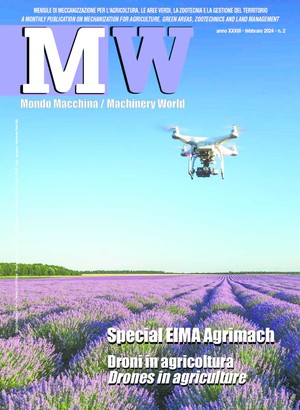
Star-chef: ambassadors of the Italian agri-food sector
Presented on Frebruary 21 in Bologna, at the headquarters of Numisma, a book that locates in the Italian communities and restaurants abroad two excellent communicators of the Italian Way of Life, agri-food sector included
The economist Denis Pantini and the journalist Alessandra Moneti are co-authors of a book titled "Ci salveranno gli chef" - Chefs will save us - (published by Agra), that provides a careful analysis of the Italian agri-food sector, in the attempt to consider how Italian cuisine and the phenomenon of star-chef can contribute to the growth of the Italian system. The production chain of this sector accounts for 9% of GNP and 14% of employment, with an export that in 2012 reached the record figure of 31.8 billion euro with an increase of 5.4% over the previous year. These great numbers lead to consider the sector as highly strategic for our economy and worthy of actions which may allow its enhancement and further developments. Since the domestic food consumption since 2007 to this day showed a decrease of 14.7%, a strong growth potential takes shape on foreign markets for this sector, in virtue of the increase in world population, but especially of the increased well-being of a wider population. It is estimated that, for example, China in the next decade will become the first market in the world for food consumption, from the current annual value of 800 to 4,000 billion dollars. A serious and structured growth strategy of the Italian agri-food exports, however, demands a strong increase in investments, that the companies, in most cases of small and medium size and with very diverse productions, are unable to cope with. These small and medium enterprises have both positive characteristics – dynamism and variety of supplies – and negative, such as the lack of penetration in significant markets. It is therefore necessary to launch a system of concrete policies for the country in order to support and promote the sector. The increase in the value of the Italian agri-food sector, characterized among other things by over 250 PDO and PGI aknowledgments, arriving at 774 including the geographical indications of wines, is a national issue that, according to the authors of the book, demands organic intervention that should take into account inter alia: the possible reduction of health and non-tariff barriers in many countries, tax exemption for promotional investments abroad and market research, the reorganization of financial supports and incentives dedicated to promotional projects worldwide, a reduction of bureaucracy and fiscal reduction to promote the constitution of consortiums and business networks, operational support to target markets and training of traders and consumers. In this path, in the opinion of the authors of the book, there are factors representing authentic strong points for this kind of export that are identified in two excellent ambassadors of Italian wine and food: Italian communities in the world and a catering based on Italic cuisine. According to an estimate of the authors, in the world there are 60 million people of Italian origin with a migration flow which has never stopped and that in the last ten years has seen 4.3 million Italians being residents abroad. This massive army can be, and partly is already, the main communicator of the "Italian way of life" and in particular of the "Italian Food", which continues to have great public approval in every continent. All over the world is steadily increasing the attention of consumers and the operators of media and agri-food sector for cooking in general and for the Italian one in particular, with the phenomenon of the "Star Chefs", that – beside being fashionable – has given rise, in the last decade, to important entrepreneurial activities, involving restaurants, farms, publishers, web and television. It is estimated that Italian restaurants abroad now count on 60/80 thousand businesses with 30 billion dollars in annual revenue, with about 3 million regular customers daily. With these numbers, the Italian cuisine is the second most popular cuisine in the world after that of China. Restaurateurs become communicators of Italian culinary traditions in the local communities and Italian export to those areas will increase only with the promotion of the contamination of local consumption habits with Italian products. Therefore, institutional measures should also be taken to help catering influence and guide consumers toward the Italian agri-food sector. To this purpose, the creation of schools of Italian cuisine abroad should be supported, in order to explain the proper use of some typical products, such as olive oil and the procedures for the exact preparation of various dishes. On the domestic front, the influence of culinary-media phenomena, despite the continuing economic crisis, occurs mainly in terms of a more conscious consumption, which involves purchase choices characterized by a good price/quality ratio.








